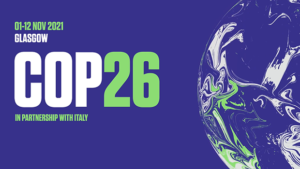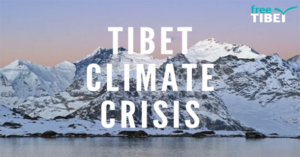 COP26, the United Nations climate conference starting on October 31 in Glasgow, UK, will see a series of climate change advocacy events which are happening across the world, including a spotlight on the climate crisis in Tibet.
COP26, the United Nations climate conference starting on October 31 in Glasgow, UK, will see a series of climate change advocacy events which are happening across the world, including a spotlight on the climate crisis in Tibet.
COP26 brings together governments, businesses, local authorities and civil society to discuss global climate action. The International Campaign for Tibet (ICT) is “calling for the inclusion of a strong rights-based approach in the fight against climate change in the COP26”. ICT highlights Tibet’s ecosystem as of regional and global importance; Tibet needs to be opened up to international scientific research they say, “The Tibetan experience is crucial as it underscores the importance of local knowledge and meaningful inclusion, both of which are largely ignored by the Chinese authorities in Tibet”. They also point out that currently Tibet is warming at two to four times faster than the global average. This has accelerated glacial and permafrost melt and exacerbated desertification, which results in the loss of a major carbon sink. Climate change in Tibet threatens the livelihood of more than one billion people who live in the countries downstream and depend on Tibetan rivers for their water supply.
A billboard highlighting the impact of climate change on Tibet, due to be displayed outside the COP26 summit, has been blocked by the billboard-owner Global Outdoor Media. Free Tibet, who created the billboard, was told it was “political” despite last minute changes, removing any reference to COP26.
 John Jones of Free Tibet said, “Tibetans have been frozen out of COP26 and now even their message has been frozen out but all the while, Tibet is still melting.”
John Jones of Free Tibet said, “Tibetans have been frozen out of COP26 and now even their message has been frozen out but all the while, Tibet is still melting.”
“Every single part of our billboard design is factual. That these facts might be embarrassing for some of those at COP26 does not make them political.”
Representatives from Free Tibet and other groups of Tibetan environmental experts and supporters will be attending the COP26 summit; the Tibetan experts will share findings of how Tibet’s environment is dramatically deteriorating due to climate change, exacerbated by policies by the Chinese Communist Party. These policies include mining, the construction of dams and the relocation of Tibetan nomads from their pastures, said Free Tibet.
On November 6, members of the Tibetan community in the United Kingdom will join the Global Day of Action for Climate Justice, where representatives intend to raise the lack of Tibetan participation at COP26.




 Print
Print Email
Email